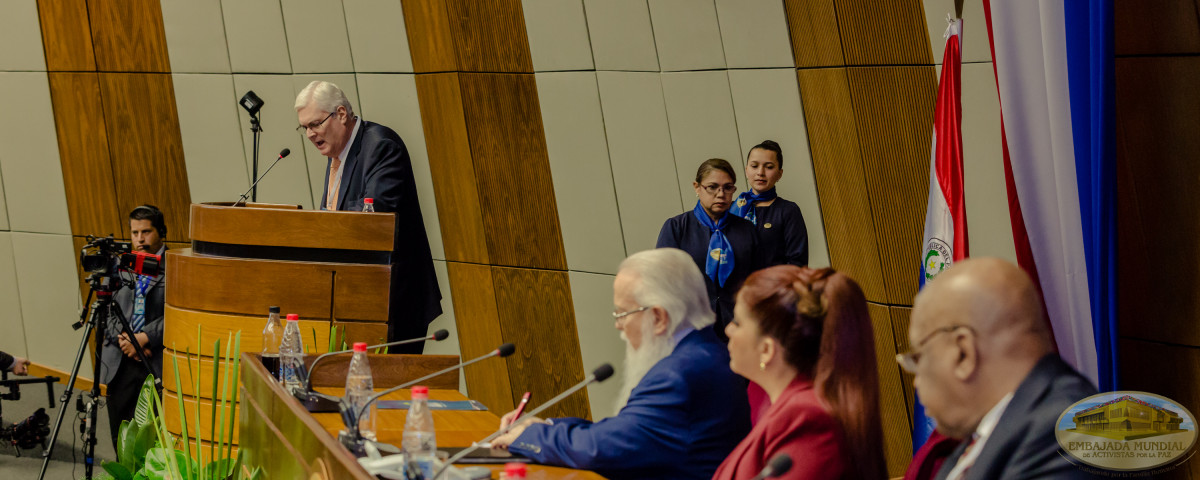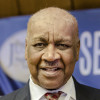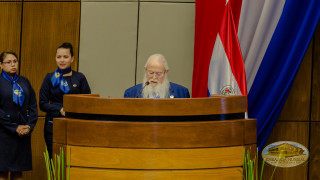Leaders from different continents gather to work for a universal justice: CUMIPAZ 2016
Legislative and judicial authorities from America, Africa and Europe, gather to discuss justice and democracy as a tool for world peace, during the sessions of the Peace Integration Summit – CUMIPAZ 2016.
The Bicameral Chamber of the Legislative Palace in Paraguay, host of the event, created a space for the development of the Justice and Democracy Session, with an audience made up of judges, magistrates, prosecutors, lawyers, law writers, among other specialists.
The lectures and academic contributions were centered on:
- The prevention and punishment of the crime of genocide, as well as ethnocide;
- The democratization of the UN;
- The strengthening of the International Criminal Court (ICC);
- The efficiency of universal and national justice;
- The recognition and respect of dignity and human rights.
Among the writers of these topics, we find judges of the ICC: Howard Morrison, from the United Kingdom and Antoine Mbe-Mindua, from Congo, Augustino Ramadhani, former president of the African Court on Human Rights, and Manuel Ventura, former judge of the Inter American Court of Human Rights.
The president of the Central American Court of Justice, Cesar Salazar Grande, also formed part of the lecturers of this session, along with the United Nations Advisor in Human Rights for Paraguay, Liliana Valiña, and the general prosecutor from El Salvador, Sonia Cortez, among other authorities.
Opening lectures
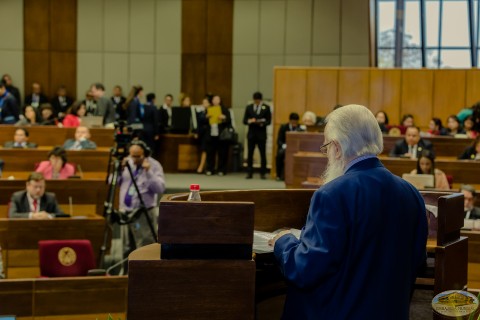
The president of CUMIPAZ, who leads the Global Embassy of Activists for Peace (GEAP), began the keynote conferences with the topic “The strengthening of the autonomy and the efficiency of justice and democracy as a foundation for world peace”.
Soto explained that the GEAP promotes any proposed reform relating to justice for peace, the prevention of genocidal behaviors as an initial and general premise.
He stated that if the States can prevent the barbarity of genocide and any act of general human rights violations, peace can be guaranteed.
“A justice for peace must be centered on truth and respect for human dignity, as well as the recognition of the victims’ rights. A restorative, autonomous and independent justice brings peace”, he said.
Double aspects of the right to truth
The human rights activists, Manuel Ventura Robles, former judge of the Inter American Court of Human Rights (IACHR), spoke on the role of this judicial body regarding the issues of justice, truth and reparations.
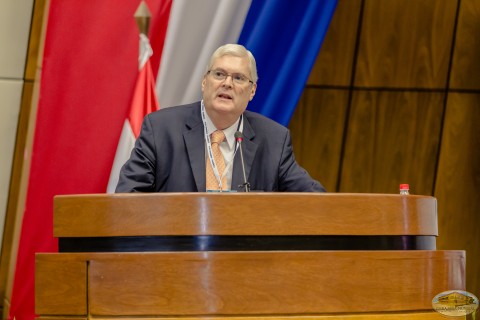
He stated that the ICC reaffirms the double aspects of the right to truth, when it determined that investigating the acts and punishing those responsible is an obligation of the State, and also, the right to truth constitutes repair mechanism.
One of the central topics given by Ventura was impunity, which, he assured, is one of the most sensitive issues in the Inter-American System for the Protection of Human Rights.
“The Court has considered that impunity must be fought by every legal method available, taking into account the need for justice in a particular case”, he stated. .
Violation of human rights and genocide: inseparable
The head of the African Court on Human and Peoples Rights’, Augustino S.L. Ramadhani, spoke of the “Challenges, strategies, operating capacity and efficiency of the African Court on Human and Peoples’ Rights for the prevention and punishment of the crime of genocide and the defense of human rights”.
Ramadhani explained that there is no direct relation between the African Court and the crime of genocide, because they only deal with human rights issues. Nonetheless, he emphasized that human rights and genocide are inseperable, given that genocide is also a violation against human rights.
“Some human rights violations are of a criminal nature and can lead to genocide (...) a generalized and systematic violation of human rights is can bring genocide”, he stated.
